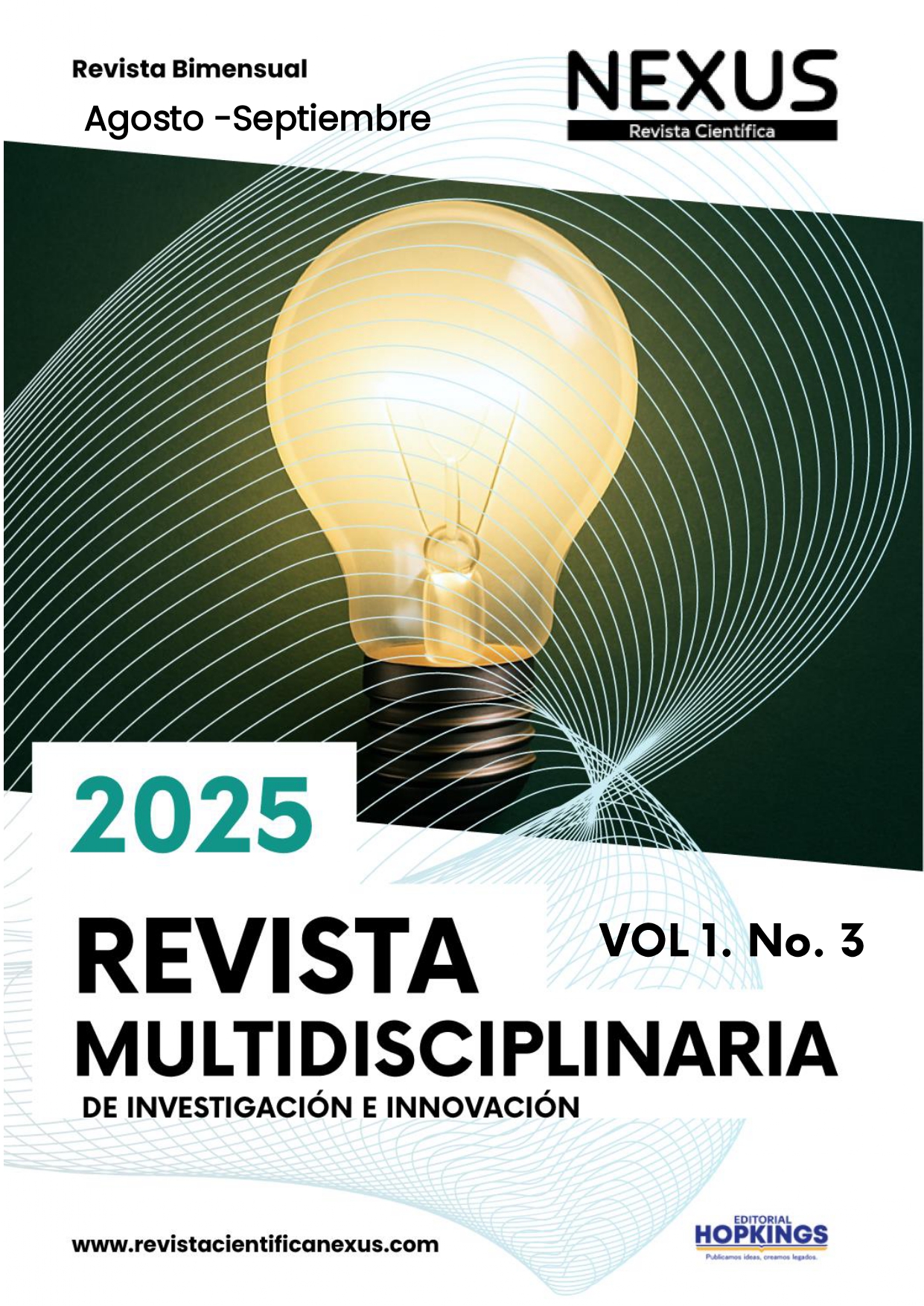Impact of pedagogical support on academic writing in high schools: A qualitative study
Contenido principal del artículo
Resumen
In secondary education, one of the key skills to develop is academic writing, especially in vulnerable environments where they face significant challenges in consolidating it. This qualitative research, using an interpretive paradigm, aimed to analyze the pedagogical impact of teacher support on academic writing among secondary school students in public institutions in Guayaquil, Ecuador. A stratified, non-probabilistic convenience sample of 12 English teachers and 36 second- and third-year high school students was selected from three different institutions. Data triangulation and comparison across contexts were performed. Through interviews, focus group observations, and documentary analysis, the cognitive, linguistic, and emotional limitations that impair writing processes were examined. Five key categories were identified: the appreciation of teacher support, writing as a reflective process, emotional and cognitive barriers, institutional limitations, and writing as an empowerment tool that supports student performance and engagement. It is revealed that students prefer individualized guidance to help them develop and create meaningful, relevant, and meaningful texts. Writing-related teaching strategies promote student learning through appropriate motivation, self-confidence, and effective textual quality. However, there are limitations regarding ongoing teacher training and institutional academic support. This study emphasizes the inherent need to implement inclusive and context-sensitive teaching strategies, with the support of teachers and students to recognize written production not only academically but also to enhance emotionally significant aspects related to personal expression and empowerment.
##plugins.themes.bootstrap3.displayStats.downloads##
Detalles del artículo
Sección
Notice: Deprecated: The template at plugins/themes/bootstrap3/templates/plugins/generic/citationStyleLanguage/citationblock.tpl has moved and will not be found in the future. in /home/revistac/public_html/lib/pkp/classes/plugins/Plugin.php on line 468
Cómo citar
Referencias
AlMarwani, M. (2020). Academic writing: Challenges and potential solutions. Arab World English Journal (AWEJ) Special Issue on CALL(6). Retrieved from https://papers.ssrn.com/sol3/papers.cfm?abstract_id=3675952
Belyaeva, E. G. (2022). Methodological model of teaching academic writing to undergraduate students. Focus on Language Education and Research, 3(1), 36-51.
Emak, L., & Ismail, H. H. (2021). Incorporating reading in writing classes and its effects on ESL learners’ writing. Creative Education, 12(8), 1949-1962.
Fukunaga, T. (2023). L2 writing development through two types of writing task repetition. International Review of Applied Linguistics in Language Teaching, 61(3), 1109-1138.
Ginting, D., & Barella, Y. (2022). Academic writing centers and the teaching of academic writing at colleges: Literature review. Journal of Education and Learning (EduLearn), 16(3), 350-356.
Hidalgo, M. Á., & Garcia Mayo, M. D. (2021). The influence of task repetition type on young EFL learners’ attention to form. Language Teaching Research, 25(4), 565-586.
Ismayanti, E., & Kholiq, A. (2020). An analysis of students’ difficulties in writing descriptive text. E-link Journal, 7(1), 10-20.
Kim, Y., Choi, B., Yun, H., Kim, B., & Choi, S. (2022). Task repetition, synchronous written corrective feedback and the learning of Korean grammar: A classroom-based study. Language Teaching Research, 26(6), 1106-1132.
Llanos, A. R. (2020). El desarrollo ideas creativas para la pre-escritura en el idioma de inglés caso: colegio “Francisco Huerta Rendón”. Boletín Redipe, 9(5), 188-198.
Llanos, A. R., & Villacrés, F. R. (2025). Autoestima y aprendizaje del inglés como lengua extranjera: Perspectivas afectivas en escuelas fiscales de Guayaquil. Revista Científica Nexus, 1(2), 40-49.
Murphy, S., & Smith, M. A. (2020). Writing to make an impact: Expanding the vision of writing in the secondary classroom. Teachers College Press.
Olmos-Vega, F. M., Stalmeijer, R. E., Varpio, L., & Kahlke, R. (2023). A practical guide to reflexivity in qualitative research: AMEE Guide No. 149 . Medical teacher, 45(3), 241-251.
Ramlal, A., & Augustin, D. S. (2020). Engaging students in reflective writing: an action research projecT. Educational Action Research, 28(3), 518-533.
Rose, H., Curle, S., Aizawa, I., & Thompson, G. (2020). What drives success in English medium taught courses? The interplay between language proficiency, academic skills, and motivation. Studies in Higher Education, 45(11), 2149-2161.
Ruini, C., & Mortara, C. C. (2022). Writing technique across psychotherapies—from traditional expressive writing to new positive psychology interventions: A narrative review. Journal of Contemporary Psychotherapy, 52(1), 23-34.
Seufert, S., Burkhard, M., & Handschuh, S. (2021). Fostering Students' Academic Writing Skills: Feedback Model for an AI-enabled Support Environment. Proceedings of Innovate Learning Summit , 49-58.
Shara, A. M., Andriani, D., Ningsih, A. W., & Shinoda, K. (2020). Correlating reading literacy and writing literacy in junior high school Pematangsiantar. Journal of English Education, 5(2), 72-85.
Tremblay-Wragg, É., Mathieu Chartier, S., Labonté-Lemoyne, É., Déri, C., & Gadbois, M. E. (2021). Writing more, better, together: how writing retreats support graduate students through their journey. Journal of Further and Higher Education, 45(1), 95-106.
Ungar, M. (2020). Working with children and youth with complex needs: 20 skills to build resilience. Routledge. doi:https://doi.org/10.4324/9780429341953
Wei, Y., & Liu, D. (2024). Incorporating peer feedback in academic writing: a systematic review of benefits and challenges. Frontiers in Psychology, 15, 1506725.

